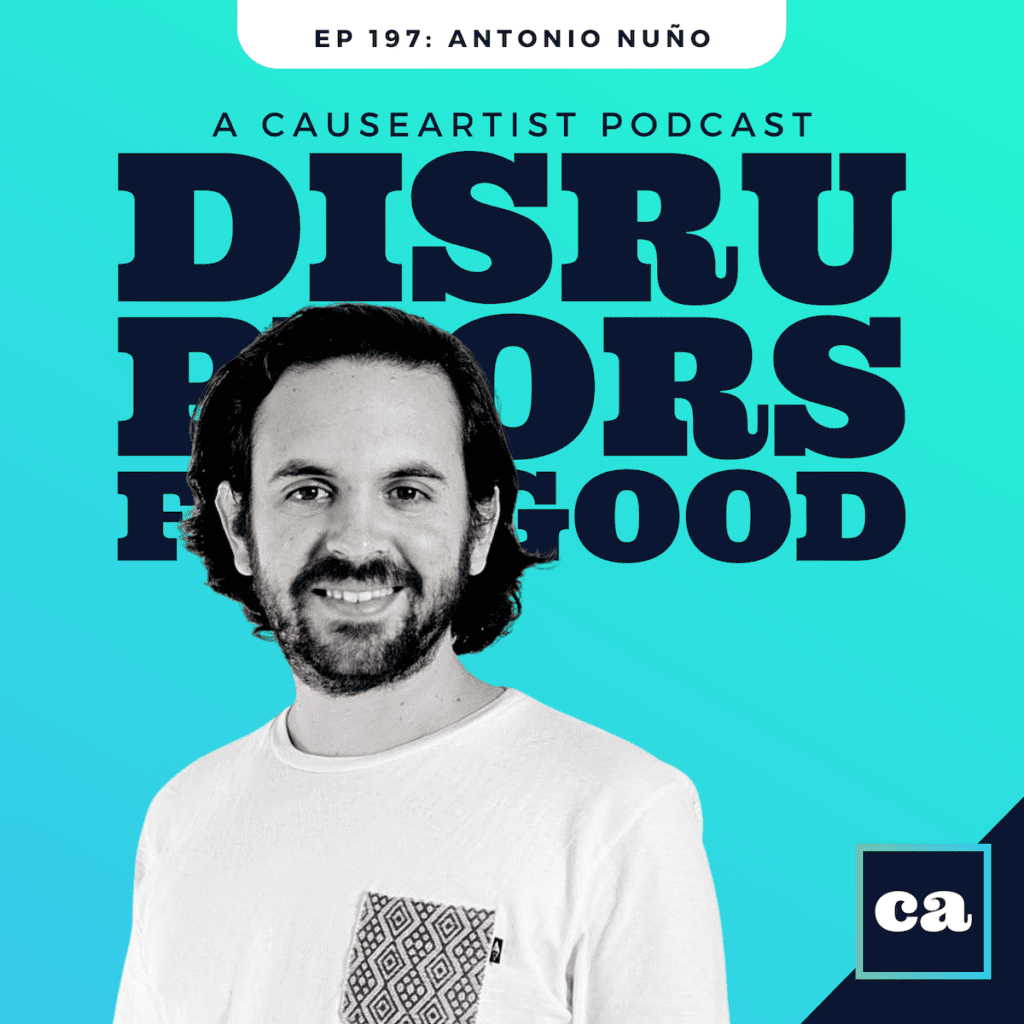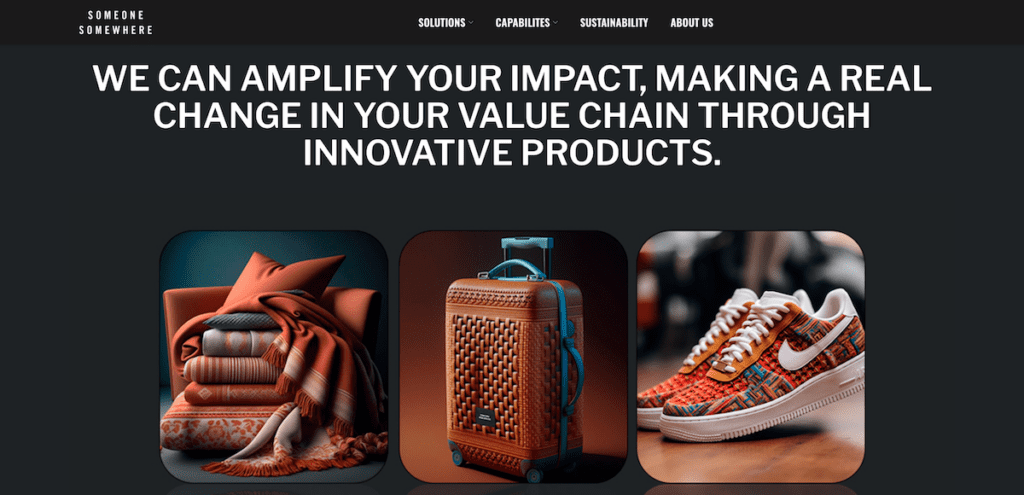In episode 197 of the Disruptors for Good podcast, I speak with Antonio Nuño, Co-founder and CEO of Someone Somewhere, on his journey starting the brand and the impact it has had on alleviating poverty through business and commerce.
The conversation covers topics such as the transition from B2C to B2B, pitching to Fortune 500 companies, sustainable manufacturing in Mexico, and the positive response from the artisan community.
Antonio also discusses the future goals for the company and the visual impact in the sales cycle.

Takeaways
- Starting a brand with the goal of alleviating poverty through business and commerce can have a significant impact.
- Transitioning from B2C to B2B can provide consistent jobs and impact in the community.
- Pitching to Fortune 500 companies requires understanding their needs and speaking their language.
- Sustainable manufacturing in Mexico can be a viable alternative to manufacturing in Asia.
- Building a company that brings artisans together can create a supportive and collaborative environment.
About Someone Somewhere
At Someone Somewhere, they make products for companies who want to transform their textile supply chains and make sustainability and social impact a priority.
They achieve this by:
- Using generative AI to design better products -Sourcing the most sustainable raw materials, or developing them when they don’t exist
- Working with indigenous artisan communities to make their fabrics and other key components
- Working with marginalized manufacturing workers to cut, sew or assemble their final products
- Doing all of this in Mexico, benefitting from NAFTA and closer distances to the US to make their products landed-cost neutral

Just in the last 12 months, they have made more than 10 million Climate Neutral products for various Fortune 500 Companies (e.g. Delta Air Lines, Google, Accenture), tripling the income of more than 3,000 people in marginalized communities.
By connecting conscious consumers and corporations to artisans across LATAM through a mobile-based supply chain, the company is raising thousands of people out of extreme poverty and recycling thousands of tons of cotton and plastic.
The company connects indigenous artisans, 98% women, in remote regions with vital, rapidly growing markets in the United States and LATAM by delivering functional, fashionable, sustainable and high-quality products for socially conscious consumers (e.g. apparel, backpacks, accessories, luggage).
The brand has a B2B channel where they work with large corporations (e.g. Google, Uber) to help them incorporate artisans into their supply chain, and a D2C channel where they sell through their own online and physical stores.
Chapters
timing of chapters might be a bit off after editing.
00:00 Introduction
00:33 Genesis of the Company
03:23 First Steps in Starting the Brand
10:06 Transition to B2B
14:19 Expansion into B2B Market
15:41 Pitching to Fortune 500 Companies
18:30 Sustainable Manufacturing in Mexico
24:26 Future Goals for the Company
28:18 Visual Impact in Sales Cycle
31:35 Physical Production Process
34:09 Impact on Artisan Community







